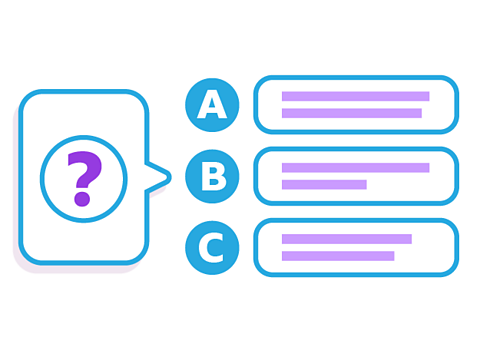Key points about impersonal verbs in Spanish

An example of an impersonal verb in English is 'one has' or 'one goes'.
Use the pronoun se and the he/she form of a verb to form an impersonal verb.
Some modal verbShows possibility, intent, ability, or necessity. Used alongside the infinitive form of the main verb of a sentence. Common examples of modal verbs include can, should, and must. always use the impersonal se. These include: se puede, se debe, se necesita.
What are impersonal verbs in Spanish?
Impersonal verbs in English include verbs such as āone doesā or āone goesā. These sound very formal in English but are used a lot more commonly in Spanish. Using them will help to make you sound more like a native Spanish speaker.
How to form impersonal verbs in Spanish
To turn any Spanish verb into an impersonal verb, use the pronoun se and the he/she form of the verb.
For example:
Se necesita un boli. - One needs a pen.
If there is a subject in the sentence, use the singular verb ending (the he/she ending) for a single subject, and the ātheyā verb ending for plural subjects.
For example:
Se habla espaƱol. - Spanish is spoken.
Las puertas se abren a las ocho. - The doors open at eight.
Modal verbs and the impersonal 'se' in Spanish
The following modal verbs often are used with the impersonal se:
Sorry, something went wrongCheck your connection, refresh the page and try again. - one can
Sorry, something went wrongCheck your connection, refresh the page and try again. - one must
Sorry, something went wrongCheck your connection, refresh the page and try again. - one needs
Se puede ir al restaurante. - One can go to the restaurant.
Se debe lavar los platos. - One must wash the dishes.
Se necesita un ordenador. - One needs a computer.

Remember
Modal verbs in Spanish are followed by an infinitiveForm of the verb that has not been conjugated. Usually translated with 'to' in English, eg to play. in Spanish.
Impersonal verbs in Spanish - Mini quiz

Translate the following sentence into Spanish using the infinitive deber:
____ ________ trabajar mucho.
One must work hard.
Se debe trabajar mucho.
Use the impersonal se with debe in the he/she form.
Other useful impersonal verbs
Sorry, something went wrongCheck your connection, refresh the page and try again. followed by the infinitive is an impersonal way of saying āone has to do somethingā.
For example:
Hay que hacer los deberes. - Has to be done.
Weather verbs are always impersonal and they are written in the he/she form of the verb.
For example:
Sorry, something went wrongCheck your connection, refresh the page and try again. - Itās cold.
Sorry, something went wrongCheck your connection, refresh the page and try again. - Itās raining.
Quiz - Impersonal verbs
Practise what you've learned about impersonal verbs in Spanish with this quiz.
Higher Tier - Impersonal verbs
- Parece que
Sorry, something went wrongCheck your connection, refresh the page and try again. means āit seems thatā.
For example:
Parece que es normal. - It seems to be normal.
- Basta
Sorry, something went wrongCheck your connection, refresh the page and try again. followed by the infinitive means āyou have only toā.
For example:
Basta hacer los deberes. - You have only to do your homework.
- Vale la pena
Sorry, something went wrongCheck your connection, refresh the page and try again. means āitās worth itā.
For example:
El curso es difĆcil pero vale la pena. - The course is complicated but it is worth it.
Sorry, something went wrongCheck your connection, refresh the page and try again. followed by the infinitive means āitās worth doing somethingā.
For example:
Vale la pena tener un empleo a tiempo parcial. - Itās worth having a part-time job.
- Hace falta
Sorry, something went wrongCheck your connection, refresh the page and try again. followed by the infinitive means āitās necessary toā.
For example:
Hace falta ir al banco. - Itās necessary to go to the bank.
- Hace falta
Sorry, something went wrongCheck your connection, refresh the page and try again. followed by the past participle means āit is still to be'.
For example:
Falta estar decidido. - Itās still to be decided.
Higher Tier quiz - Impersonal verbs
Practise what you've learned about impersonal verbs in Spanish with this quiz.
Now you have learned about impersonal verbs in Spanish why not explore the conditional tense in Spanish?
More on Present tense verbs
Find out more by working through a topic
- count7 of 10

- count9 of 10

- count10 of 10
